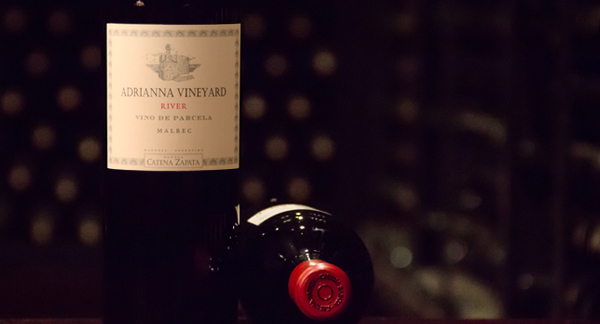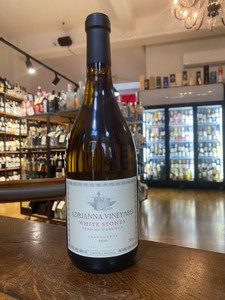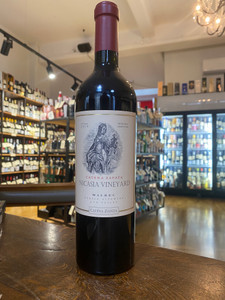
WINE DESCRIPTION
This cuvée takes its name from a small parcel of the Adrianna Vineyard that is completely covered with oval white stones and was the site of an ancient riverbed. The abundant stones provide optimal drainage and extreme temperatures. They absorb heat and moderate the nights, but also function like ice cubes after a very cold night. Stony soil Malbecs tend to be extremely aromatic, rich and luxurious, just like the River Malbec from Adrianna. This wine can be enjoyed young or after being aged for decades.
TECHNICAL INFORMATION
- Fermentation: In 225 liter oak barrels and 500 liter French oak roll-fermenters for 17 days
- Max. Fermentation Temperature: 25-30° C, 10-15 day maceration
- Aging: 20 months in barrel, oak treatment is decided according to the vintage. French Oak
- Varietal: 100% Malbec
- Alcohol: 13.9%
- Total Acidity: 6.9 g/liter
- pH: 3.6
- 500 - foudres
- Wild yeast
- Key Word Descriptors: floral, exuberant, lengthy smooth tannins, metallic

VINEYARD
- Adrianna Vineyard: Gualtallary District, Tupungato Alto Region, Uco Valley, Mendoza, Argentina
- Parcel Name: River
- Parcel Surface: 2.6 Hectares
- Soil composition: Alluvial origin. White stones covered by calcium carbonate. Ancient river bed
- Altitude: 1.366m elevation
VINEYARDS
Old Vines from the Catena Zapata Family Vineyards, Nicasia and Angélica. The origins of the vines, which we call “The Catena Cuttings”, is a prephyloxeric Massale Selection from the Angélica Vineyard.
Harvest time varies depending on each lot's soil composition. Harvest time can vary by several weeks between one lot and another within the same vineyard.
The Producer
"Nicolás Catena Zapata is justly credited with putting Argentinean wines on the world map—by the best expedient of focusing entirely on quality. It's great to know he has started a wine dynasty, too."
Jancis Robinson, Financial Times wine journalist
"Nicolás Catena Zapata is a man of vision, of high intellect, always curious about others and about how the world is developing. He has been instrumental in changing the Argentinian wine scene more than anybody else, pushing it towards high quality."Baron Eric de Rothschild, Château Lafite
When the Catenas decided to experiment with a new terroir at high altitude, they entered a world dominated by the long-held French theory that quality depends mostly on terroir. According to the French, the human factor—whether the winemaker or the vineyard manager—is inconsequential. Quality only depends on nature, climate, and the type of soil where the vineyard is planted. There is nothing that the winemaker can do if the quality does not come from the place where the vineyard is located: the terroir.
In trying to implement this French theory in Argentina several years ago, the Catenas made a startling discovery: The alluvial soils from Mendoza are not homogenous. In other words, in the same vineyard, within short distances, there are both physical and chemical soil differences, resulting in vineyard lots or parcelas with unique characteristics. As a result, each vineyard lot gives origin to its own unique wine with very specific flavors and aromas. This discovery prompted the family to drill down even deeper into the theory of terroir.

Dr. Laura Catena, a biologist who graduated with honors from Harvard University, decided to instill in the winery team the method of research and study, what she calls "the science of understanding nature."
With the help of Catena's Head Winemaker Alejandro Vigil, Fernando Buscema, Catena Institute of Wine Director, and Vineyard Manager Luis Reginato, Laura created the Catena Institute of Wine. Since then, the Catenas have conducted strong research aimed at getting a better understanding of the Argentine terroir, the characteristics of Mendoza, and to study every aspect of their vineyards with the ultimate goal of making Argentine wines that can stand with the best of the world. The Catena's first successful project using research as a guide was with Chardonnay.





